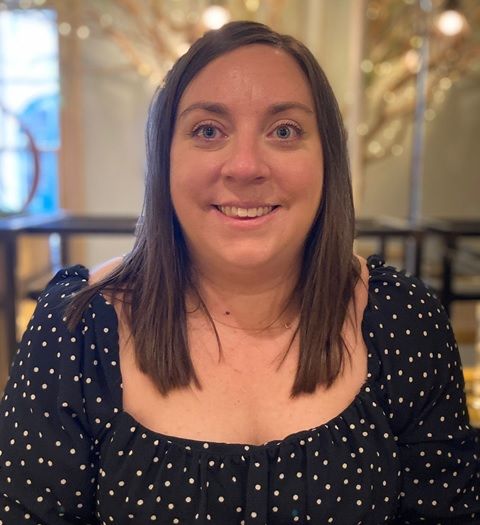NHD STUDENT BLOG SERIES

WORKING WITHIN THE COMMUNITY

Caroline studied an MSc in Nutrition and Public Health Management at Sheffield Hallam University. She now has over seven years' experience working in community services. She is based at Evelina London Children’s Healthcare (part of Guy’s and St Thomas’ NHS Foundation Trust) and is currently completing a level 5 ‘Improvement specialist’ Apprenticeship programme.
By Caroline Pollard, Msc
Advanced Community Dietetic Assistant
As you start to contemplate life after studying or what your placements might entail, you could be picturing yourself working in a hospital; but allow me to give you an insight into what it’s like working in the community. From experience, I can say that working outside of the hospital setting allows for more direct involvement in patient lives and gives a strong feeling of giving back to the community.
DIFFERENCE BETWEEN ACUTE AND COMMUNITY
Working in the community is more preventative in nature, as a large proportion of the working role is spent educating patients and families on how they can take care of their own health and care needs. It can be seen as bridging the gap between hospital and home care, in view of preventing health concerns before there is a need for patients to attend hospital.
Working in the community, each day is different. You can find yourself running a clinic in the morning and then taking part in a journal club in the afternoon. The next day might be admin based or delivering group training sessions to patients or families. It also allows for flexibility of travel; you won’t be confined to a ward but instead seeing patients at their home, in community health centres, or in local schools.
The patients seen in the community may be on a caseload for a long period of time, which allows an extensive relationship of trust between practitioners and families.
Our service sees children from birth until 19 years old, transitioning them onto adult services as needed. We may have children on our caseload for a number of years.

WORKING WITH MULTIDISCIPLINARY TEAMS (MTDS)
Community working is a practitioner- and therapist-led environment, so you will find creating working relationships with other professionals (such as paediatricians, nurses, speech and language therapists, occupational therapists, physiotherapists, psychologists, other Allied Health Professionals and GPs), a crucial part of day-to-day working.
Joint appointments are not uncommon, this allows families to see multiple healthcare professionals at one appointment to help reduce the burden of appointments, and it also provides partnership working, expertise sharing and a better outcome for families. For example, a community feeding clinic can have a paediatrician, dietitian, occupational therapist, speech and language therapist and a psychologist involved in triage, as well as initial appointments.

ACCESS TO INFORMATION
A common challenge for community working is the link between clinical notes and records made at the hospital, as sometimes there is limited access to this information or there are multiple systems to log into to review information. To overcome this, our organisation is launching the new ‘Epic’ electronic health record system, via our Apollo programme. This will bring together and replace many of our current systems connecting the community and hospital.
Multidisciplinary team working is a crucial part of day-to-day dietetics in a community setting.
VIRTUAL WORKING
During the pandemic and post-pandemic, we have the wonders of technology (eg, MS Teams!) helping to facilitate joint appointments between multiple professionals. This gives us the opportunity to join our colleagues carrying out face-to-face appointments, so we can provide clinic input from various locations. It has also opened doors to providing virtual group health education sessions to patients and families. Our service in particular has seen a positive increase in the attendance rates in comparison with face-to-face sessions.
FINAL THOUGHTS
Consider all your options and embrace the unique opportunities that working in the community can bring.
Good luck to all Nutrition and Dietetic students in your career choices and progression.
Don't forget to sign up for FREE to NHD in print for all your essential resources.

